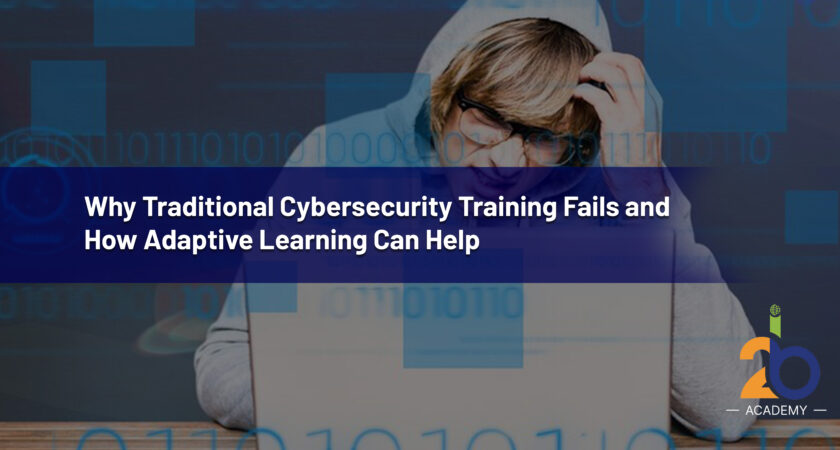Cybersecurity awareness training is a crucial part of any organization’s security posture. However, traditional training methods often fall short, leaving employees forgetting key concepts or failing to apply their knowledge in real-world situations.
The Problem with Traditional Training
The article acknowledges the limitations of traditional training methods by highlighting several reasons why they might not be effective:
- Different Learning Styles: People have different learning styles and absorb information at varying paces. Some may require detailed explanations, while others prefer clear, concise examples.
- Varying Background Knowledge: Employees come to training sessions with diverse levels of prior knowledge. Some may grasp concepts quickly, while others may need more time and repetition.
- Confident Learners vs. Skeptical Learners: Some trainees are eager to learn and retain information, while others may be skeptical or doubt the presented material.
- Retention Issues: Traditional training often fails to consider information retention. Employees who are bored by repetitive content or who lack personalized reinforcement may quickly forget what they learned.
These factors create a challenge for trainers: ideally, each employee would receive a tailored learning experience. However, creating individual training plans for large workforces is simply not practical.
The Solution: Adaptive Learning
The article proposes Adaptive Learning as a solution to the shortcomings of traditional training methods. Adaptive learning platforms use interactive technology to personalize the training experience for each individual. Here’s how it works:
- Assessing Knowledge and Confidence: At the beginning of the course, trainees take an assessment to gauge their existing knowledge level and their confidence in that knowledge. This sets a baseline for the personalized learning path.
- Tailored Content Delivery: The platform tailors the training content based on the assessment results. Beginners receive foundational materials before answering questions, while experts face a question-driven approach with access to supporting materials only when needed.
- Confidence-Based Learning: When answering questions, trainees are prompted to indicate their confidence level in their chosen answer. This data helps the system build an optimal learning trajectory.
- Focus on Unfamiliar Topics: The platform identifies areas where the trainee needs improvement and focuses on those topics, hiding content that the trainee has already mastered.
- Faster Completion for Experts: The adaptive nature allows experienced users to progress through the training more quickly by avoiding redundant information.
Kaspersky Adaptive Online Training
The article introduces Kaspersky Adaptive Online Training, a product developed in collaboration with Area9 Lyceum, a leader in adaptive learning platforms. This training program offers the following features:
- Current Course Topics: The current curriculum covers password security, website safety, social media awareness, instant messaging best practices, mobile device protection, and secure work computer usage. The program plans to expand to include additional topics like GDPR compliance.
- Real-World Examples: Lessons are built on real-life case studies, providing trainees with relatable scenarios encountered by cybersecurity professionals.
- Progress Tracking and Targeted Support: The platform offers detailed progress reports for trainers and highlights trainees who may be struggling despite displaying high confidence in their answers. This allows for targeted intervention and additional support.
- Multilingual Support: The training materials are currently available in English, German, Spanish, Arabic, French, Italian, and Russian.
The article concludes by directing readers to the Kaspersky Adaptive Online Training page for more information.


